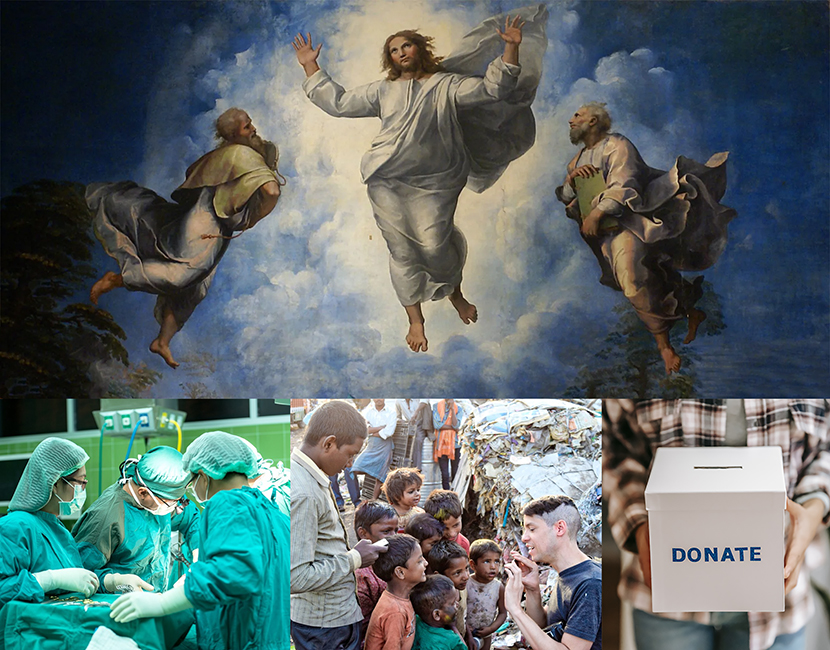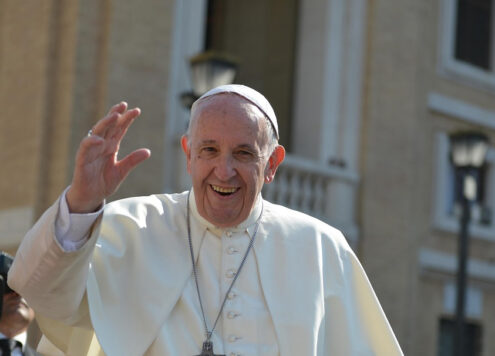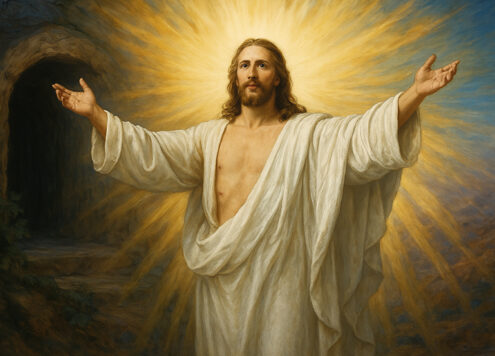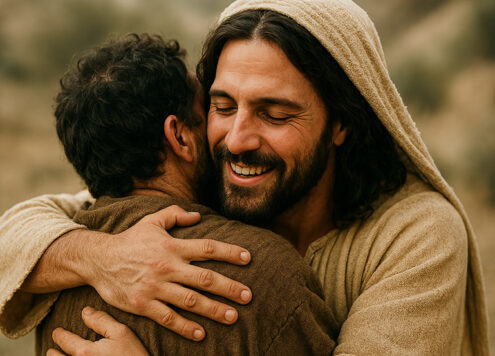The Transfiguration of Jesus is one of the most significant events recorded in the Gospels, and its theological meaning is profound. At the center of this miracle is the transformation of Jesus, where he is transfigured into a radiant and glorious form in the presence of his disciples. The presence of Moses and Elijah at this moment is also essential and represents the entire law and prophetic tradition of Israel, which are now fulfilled in Christ.
Moreover, the location of the event, on a mountain, is also significant. It looks back to Sinai, where the Ten Commandments were established and represents the old covenant. But at the same time, it also looks forward to the new covenant of Jesus, which is founded on the commandment to “Love one another as I have loved you.” This new covenant represents a transformation in humanity’s relationship with God, marked by love and forgiveness.
The significance of the transfiguration event in the gospels of Matthew, Mark and Luke is not only in its revelation of the divinity of Jesus but also in what it represents for us as believers. It shows us where faith leads, towards transformation into a new life. This new life is glorious and can begin right now, not only after death, as it represents a transformation of our hearts towards a life marked by love.
In contrast to the flickering faith of Abraham, which carried him through days and nights of temptation, the Transfiguration shows us that our faith can lead us towards a life of transformation, where we are filled with the radiance of Christ’s love. Thus it is an invitation to all of us to embrace the transformation that Jesus offers, to follow him and to live our lives as a testimony to the gospel. Our faith in the gospel is not just a mystical experience that we can retreat to in moments of solitude. Instead, it must be lived out in the context of everyday life, in the midst of the maddening crowds and distractions of each day.
Like St. Peter, we may be tempted to cherish a splendid vision of glory and seek to escape the complexities of the world. The poet W.B. Yeats in “The Lake Isle of Innisfree” also expresses a similar sense of mystical withdrawal. He was inspired by the experience, but the reality is that we cannot live in a bubble away from the realities of the world. Our faith must bear fruit in the real world, where we encounter real people and face ongoing problems. The apostles’ experience of coming down from the mountain after witnessing the transfiguration illustrates this point. They were not meant to stay on the mountain and bask in the glory of the divine radiance forever. Instead, they were to come down and continue the work that Jesus had begun, proclaiming the good news and living out the gospel message in the here and now.
Living the faith in the midst of everyday life is the true test of a Christian. It is in these moments that we are called to put our faith into action, to show love to those around us and to be witnesses to the transforming power of the gospel.
Thus, the Transfiguration of Jesus is not just an experience of Jesus’s divine glory but it is a call to live out that faith in the context of real life. It is by living the gospel message in our ordinary lives that we bring the light of salvation into “clear light.” By doing this, we become, as Jesus says, “a light to others.”
In conclusion, let us take the time to reflect on the teachings of Christ and examine our hearts’ nooks and crannies that need to be changed. The Transfiguration is a powerful reminder of the transformative power of Christ’s love. Let us open ourselves up to this love of Christ and seek to live out the gospel message in our daily lives.
—Fr. Hugh Duffy











4 Comments
Tom Walsh
Thank you For. Hugh for this indepth understanding of the Transfiguration of Jesus, it is very much appreciated. Tom
Gerard Palermo
Beautiful!
Tom Rooney
Powerful beautiful message
Bartholomew Okere
Fr. Duffy, another classic catechesis on the Transfiguration of Christ @ Mt Tabor with his three inner circle apostles, Peter, James & John. That the Church celebrates Transfiguration on the 2nd Sunday of Lent instead of it’s actual Aug 6th carries a transformative love of Jesus & his Father’s voice as testament of his divine/human nature. Thanx for your biblical exposea.